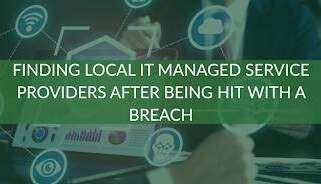Is SharePoint HIPAA Compliant: Crucial Factors and Considerations
As a healthcare organization, you undoubtedly embrace digital transformation to improve efficiency, reduce errors, and make data-driven decisions. One question that may arise during this process is whether SharePoint is HIPAA compliant, especially when evaluating the potential of various tools.
The journey towards digital transformation can be complicated and riddled with potential setbacks. Some mistakes may only affect efficiency or return on investment, while others can have more serious consequences, such as regulatory breaches like HIPAA violations. To avoid these risks, it is crucial to understand the compliance of key tools, such as SharePoint, and their role within your healthcare organization.
Key Takeaways
- SharePoint can play a crucial role in healthcare organizations' digital transformation.
- HIPAA compliance is a major consideration when implementing new tools and technologies.
- Understanding the compliance requirements of tools like SharePoint is essential to avoiding regulatory breaches and ensuring data security.
Microsoft 365 and SharePoint in the Healthcare Setting
Amidst the digital advancements and regulatory concerns, healthcare organizations often wonder about compliance with tools like Microsoft 365 and SharePoint, especially regarding HIPAA compliance. These technologies possess significant potential for healthcare institutions, but can they safely store and manage electronic health records (EHRs) or other personally identifiable information (PII)?
Compliance with HIPAA regulations for Microsoft 365 and SharePoint is not straightforward. While Microsoft provides guidelines for compliance, user behavior, and organizational practices play a vital role in ensuring the correct implementation.
To succeed in using Microsoft 365 and SharePoint while maintaining HIPAA compliance, healthcare organizations must adopt and implement technical safeguards. This includes configuring the systems to adhere to HIPAA regulations and following best practices.
Here are a few key points to consider:
- SharePoint and Microsoft 365 can support HIPAA compliance when properly configured and used.
- Organizations should have technical safeguards in place to prevent unintentional non-compliance.
- Compliance depends on the correct use of the platform and adherence to HIPAA guidelines.
- Prioritize training and education for healthcare professionals using these systems.
Remember, while these tools can be adapted to function within HIPAA guidelines, it is up to the organization and its users to ensure compliance.
Is Microsoft 365 HIPAA Compliant?
When discussing Microsoft 365 and HIPAA compliance, it's essential to understand that compliance is not a built-in feature but a user's responsibility. Making a car analogy is like asking if a car is "speed limit compliant" – the compliance depends on the driver.
That said, the quality of Microsoft 365 as a software platform plays a vital role in enabling users to maintain HIPAA compliance. Just as a well-made car reduces risks while driving, well-crafted software helps healthcare organizations prevent data misuse.
Microsoft 365 provides features to support HIPAA compliance, but it's not inherently compliant. It can be used in HIPAA-compliant ways, but Microsoft cannot guarantee complete compliance without external assistance. Here's what you need to know:
- Microsoft 365 is well-made software: Microsoft's reputation in designing secure software solutions lends credibility to its ability to provide a solid foundation for maintaining HIPAA compliance.
- Usage matters: How an organization uses Microsoft 365 determines compliance. Proper implementation of policies, employee training, and technical safeguards contribute to maintaining a HIPAA-compliant environment.
- External help: Assistance from third-party service providers or compliance experts can further enhance your organization's ability to ensure that Microsoft 365 is used in a HIPAA-compliant manner.
In conclusion, achieving HIPAA compliance with Microsoft 365 is possible, but it rests on your organizational practices and how well the software is used and configured to handle sensitive medical data. With proper guidance and implementation, Microsoft 365 can be an effective tool in maintaining a HIPAA-compliant infrastructure.
Is SharePoint HIPAA Compliant?
SharePoint has the potential to be used in a manner that is compliant with HIPAA regulations when sharing electronic health records (EHR) and documents with personally identifiable information (PII). However, it is crucial to note that using SharePoint does not automatically guarantee adherence to HIPAA requirements.
Like your car doesn't restrict you from driving above the speed limit, SharePoint will not inherently prevent users from violating HIPAA rules. To maintain compliance, organizations must implement proper technical safeguards when using SharePoint.
To ensure HIPAA compliance while utilizing SharePoint, delve deeper into understanding the specific aspects of the regulation and take necessary measures to uphold its standards.
What are the key aspects of Achieving HIPAA compliance?
To ensure HIPAA compliance, the focus should be on three critical areas:
- Technical Compliance: This area encompasses the technology systems that handle patient data classified as Personally Identifiable Information (PII). Considerations include access control, data integrity, user authentication, and secure file transmission.
- Administrative Compliance: This area deals with policies and procedures organizations establish to safeguard data and regulate access. Examples include guidelines on verbal information sharing in public spaces, password creation and authentication, and other privacy-related administrative practices.
- Physical Compliance: This area involves real-world measures to secure records and systems, such as storing physical records in restricted areas, securing on-site servers and endpoints using barriers (e.g., locked server rooms), and implementing high-quality access controls (badges, passwords, biometrics, etc.) for computer access.
When evaluating SharePoint's HIPAA compliance, especially when using Microsoft 365 and SharePoint in healthcare settings, it's crucial to weigh all three compliance areas. The technical foundations of Microsoft 365 play a significant role, as do the administrative policies that an organization establishes for using SharePoint. While physical compliance is less concerned with software or platform decisions, it is still vital to consider the layout and security of your healthcare facility's equipment.
Understanding HIPAA Technical Safeguards
1. Controlling Access
Access control ensures that only authorized individuals can access electronic protected health information (ePHI). Proper access control must be in place to set up a compliant environment. Platforms like Microsoft 365 and SharePoint can be configured to implement appropriate access control, contributing to their HIPAA compliance.
2. Protecting Data in Motion
When deliberating the question 'Is SharePoint HIPAA compliant?', data in motion, which refers to data being transferred between systems or actively utilized by a system or human operator, is critical. Some key safeguards for data in motion include:
- Data encryption
- Access control for both systems and specific data
- Utilizing metadata or anonymized data for research and analytics rather than raw data
3. Safeguarding Data at Rest
Data at rest refers to information stored on a server, on-premises, or in a cloud server provided by a company like Microsoft. This data isn't actively being used but must be maintained for future use. Ensuring HIPAA compliance in the context of data at rest involves:
- Data encryption
- Robust access control measures
- Physical access control, such as locks and secured server rooms to prevent unauthorized access
Adequate safeguards are crucial when using platforms like SharePoint to store sensitive medical data, as a breach that exposes ePHI due to a lack of reasonable and appropriate protection measures could lead to HIPAA violations.
How IT Providers Help With Technical Aspects of HIPAA Compliance
Working with a dependable IT provider helps you navigate the technical challenges of remaining HIPAA compliant when using Microsoft 365 or SharePoint. They guide healthcare clients in creating and implementing the necessary technical safeguards to meet HIPAA regulations so professionals can focus on their core responsibilities.
IT providers contribute in several ways:
- Cybersecurity: Implementing layers of protection against potential threats
- Risk assessments: Identifying vulnerabilities and areas for improvement
- Ongoing auditing: Ensuring continuous HIPAA compliance, including with SharePoint usage
IT providers facilitate a secure and compliant environment for healthcare organizations by assisting in these crucial aspects.
Is a BAA Needed with Microsoft?
According to HIPAA regulations, healthcare organizations need to establish business associate agreements (BAAs) with business associates who have access to protected health information (PHI). Microsoft has confirmed its willingness to sign BAAs with customers who are covered entities or business associates. However, it's important to note that having a BAA alone isn't sufficient to ensure full compliance with HIPAA or HITECH.
Essentially, the responsibility of ensuring HIPAA compliance lies with your company's internal processes and compliance program. It's crucial to ensure that your organization's Microsoft services usage aligns with your HIPAA obligations.
Keep in mind that obtaining a BAA with Microsoft isn't automatic. You must contact Microsoft directly or through your IT provider to secure the agreement.
Ensuring HIPAA compliance while using Microsoft 365 and SharePoint can be complex, as you must navigate the intricacies of adherence while using these products. Professional assistance from IT and cybersecurity organizations may prove helpful in this effort. These specialists can help you establish technical safeguards and policies for Microsoft 365 and SharePoint, and various other applications and services.
Working with experts can confidently move your organization toward a cloud-based future without compromising compliance with healthcare regulations.



